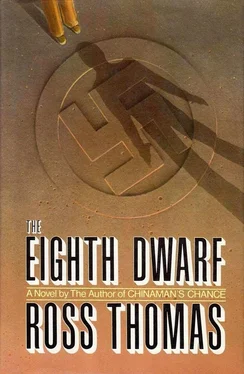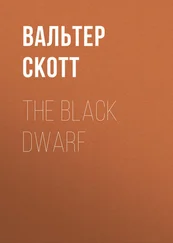Kubista nodded. “You are wise. Too many are already making inquiries. Soon the American authorities will be making them.”
“And you will have something to tell them.”
“Good.”
“But first you can sell what you know to your printer friend and to the Romanian.”
“Even better. But how much can I sell them?”
“You can sell them where I’ve been, but not where I’m going.”
Kubista smiled. “The cellar in the old castle.”
Oppenheimer nodded.
“Is your immense store of cigarettes included?”
“Unfortunately, yes.”
Kubista smiled again. “Then I will adjust my price accordingly.”
By the time Lieutenant Meyer and Major Baker-Bates got there, the U.S. Constabulary, with their lacquered blue-and-yellow helmet liners, were swarming over the Opel plant at Russelsheim like so many potato bugs.
The Constabulary was what the Army had come up with when it suddenly discovered that it had not many more than 150,000 troops to keep order in its zone of occupation and menace the Russians at the same time. What it lacked in numbers it decided to make up for in visibility.
Immediately scrapped was the Eisenhower jacket, which made what troops there were look like so many gas-station attendants — unless they were six feet tall and had a male model’s physique. The Ike jacket was replaced with a brass-buttoned blouse on whose left shoulder was a 2½ inch gold disk patch bordered in blue. When they weren’t wearing their flashy helmet liners, members of the Constabulary had to wear visored service caps. On their feet were highly polished paratroop boots, and the final touch of what someone had decided was class came in the form of a Sam Browne belt. Hanging from the belt was a .45-caliber automatic.
It was all mostly for show, but since the Germans admired nothing as much as a snappily turned-out soldier, a jeepful of Constabulary troops zipping through a village could keep the American presence very much in the German mind. They were called the Constabulary because someone had remembered that that was what the Army had called its troops when it had occupied the Philippines after the war with Spain. It also had a nice semi-police-state ring.
The body of the dead Oskar Gerwinat had been removed from Lieutenant Fallon’s office by the time a Constabulary captain ushered in Meyer and Baker-Bates. Lieutenant Fallon had already told his story to some CID types, who were still hanging around waiting for him to get his breath so he could tell it twice and probably three times. Reluctantly they agreed to let Meyer and Baker-Bates have their crack at Fallon, but only after Meyer dropped the names of a couple of USFET generals who, he claimed, were expecting a full report within the hour.
The first thing Meyer did was show Fallon the photograph of Kurt Oppenheimer. Fallon studied it carefully, then looked up and said, “Yeah, that’s the guy. He’s German, huh?”
“He’s German,” Meyer said.
“Well, he sure talks one hell of a good brand of American.”
“Tell us about it, Lieutenant,” Baker-Bates said. “Start at the beginning and tell it just as you remember it.”
So Fallon told it again, and after he got to the point where Oppenheimer had introduced his “evidence” in the form of one of the pages that he had ripped from the blackmailer Damm’s ledgerlike book, Lieutenant Meyer interrupted.
“It was just a page?”
“Yeah, a page with two photographs on it.”
“But there was also information on it?”
“Sure, but I couldn’t read it because it was in German.”
“This information. Was it typed or written?”
“It was written.”
“In ink?”
“Yeah, sure, ink.”
“Okay,” Meyer said, “go on.”
So Lieutenant Fallon went on, and when he was through, Lieutenant Meyer brought him back again to the page that had been torn from Damm’s ledger. In fact, Lieutenant Meyer opened his briefcase and took out the ledger itself.
“Take a look at this, Lieutenant, and see if the page that you saw is like the pages in this ledger.”
Lieutenant Fallon flipped through the ledger. “Yeah, I’d say it was. I’d say it was exactly like them, except that the one I saw was torn along one edge like it had been ripped out.”
“Let’s go back to that page for a moment,” Major Baker-Bates said. “You said there were two photographs on it?”
“One was a photograph of Wiese, or Gerwinat, or whatever the hell his name was. It looked like it had been taken through a window when he wasn’t looking. What I mean is that Wiese didn’t look like he knew his picture was being taken.”
“And the other photograph?” Baker-Bates said.
“Same thing, except that it didn’t look like it was taken through a window.”
“It was of a man?”
“Yeah, a man.”
“Can you describe him?”
“Hell, I just glanced at it. I would say he was a guy about forty or forty-five.”
“Was he fat-faced, thin-faced, did he wear glasses, what?”
Lieutenant Fallon shook his head. “Honestly, I don’t remember. I don’t think he wore glasses, but I couldn’t swear to it.”
“No, that would be too much to hope for,” Baker-Bates said.
Lieutenant Meyer sighed. “Okay, let’s take it once more step by step.”
A pained expression appeared on Fallon’s face. “You mean the whole thing?”
“No, just when he handed you the sheet of paper with the photographs on it. What did he say?”
“He just had me look at it, and when I said I couldn’t read German, he said he’d have the interpreter translate it. You know, Wiese.”
“How long did you look at the page?”
“How long — just a few seconds.”
“But you tried to read it?”
“Sure.”
“Now think carefully. Was there anything that you can remember not from the section of the page that concerned Wiese, but the other section — the lower one?”
Fallon screwed up his face in honest concentration. Meyer and Baker-Bates waited patiently. Finally, Fallon shook his head. “About the only thing I could read was the numbers.”
“What numbers?”
“There were a couple of numbers for some kind of address. Two of them, I think. Either twelve or thirteen or maybe fifteen. I remember that it was a low number.”
“How did you know they were for an address?”
“Because they were just before Something-strasse. Well, hell, I know what a Strasse is.”
“But you don’t remember what Strasse it was?”
“I sure don’t.”
“What a pity,” Baker-Bates said.
“But I remember what came right after the address.”
“What?”
“The name of the city. That I could read. Would that be any help?”
Meyer and Baker-Bates looked at each other. Then Meyer, in a very careful voice, said, “That might help just a little, Lieutenant What city was it?”
“Bonn,” Fallon said. “The reason I remembered it was because last month when I took a trip up the Rhine that was far as we got. It’s a pretty little town. You guys ever been there?”
“Not recently,” Major Baker-Bates said.
When they went back out to Meyer’s jeep after questioning both Corporal Little and Private Baxter, Major Baker-Bates was in a buoyant mood that bordered on ebullience. “Well, it looks as though it’s back in my court, doesn’t it?”
It was a glum nod that Meyer gave him. “Bonn’s in the British Zone, all right”
“You’ll be coming to Bonn, of course?”
“I’ll have to check.”
“I do so hope that you can. It’ll give me the opportunity to reciprocate your splendid hospitality.”
“Of course, there’s a chance that he might not go to Bonn.”
“Oppenheimer?”
Читать дальше












